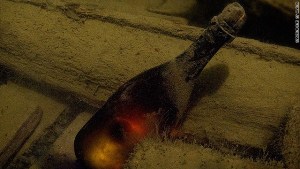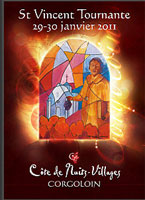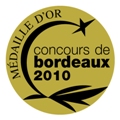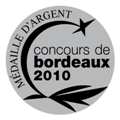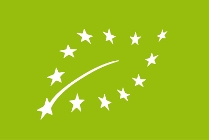The very next day after posting our blog article,
What Makes French Organic Wine, Organic, the European
Commission withdrew the Orwine project, which was supposed to
find a European standard for organic wine.
Decanter has reported on this in their article, EU
says no to organic wine. Vitisphere (French language link) quote the
EU Commissioner for Agriculture & Rural Development, Dacian
Ciolos, as saying "the conditions for introducing these new
rules are not united in the majority of the member states.
I am not ready to accept a compromise on the organic standards
which would send a bad signal to the consumers on the importance
that the Commission places on quality. I hope that the
(wine) industry and research will make progress, and that the
Commission will come back with a proposition."
We agree with the stance to refuse a compromise on standards,
which are in our view the minimum that the public expects, but we
are very concerned about the position in which organic wine is
left.
If you buy organic jam, you expect a product that is not only
made from fruit that has been cultivated to organic standards,
but that the sugar used is organic, and that no other artificial
elements have been use to "enhance" the flavour or colour.
Why should wine be any different?
It would appear that the wine making methods used in different EU
countries and region are at the heart of the problem. But
why? If we agree on the principal that organic wine should be
made from organically grown grapes, without the use of chemical
fertilizers, pesticides and herbicides, and that nothing
unnatural is added during the fermentation and ageing process,
there shouldn't be any problem. True, there remains some
debate about the use of some products such as sulfur to help
preserve the wine, but the proposal to reduce the amount by 50%
is a good starting point, and winemakers can use less if they
wish.
A question of integrity
Yesterday we were at Domaine Chapelle (French language link) in Santenay,
Burgundy for a Gourmet Odyssey Wine Experience day. Domaine
Chapelle has been organically certified since the beginning of
this year, but has been using organic methods for best part of
the last decade. Jean François Chapelle explained the journey he
embarked on to become an organic winemaker, and also responded to
questions about the wine making methods he uses. He is
clearly a passionate man, not just for wine, but for the
environment around him; his terroir, his village, his region, the
legacy that his generation will leave to future
generations. He adds nothing else to his wine that wasn't
covered by the Orwine proposal. Do organic wine
makers in France, Italy, or Spain with the same ideology really
think differently from one another?
Without a European standard, the worst possible outcome is
inertia, which leaves the door open to profiteers who want to
jump on the organic wine band wagon for purely economic
reasons. The other risk is that each country develops its
own standards, but if the rules are different from one country to
another, how can the consumer make an educated purchase
decision? Maybe the time has come for wine, like other food
and drink products, to include the ingredients and amounts used
on the labels, especially for organic wine?
A solution must be found urgently to introduce organic wine
making rules and to have a real organic wine label.
What are your thoughts?
